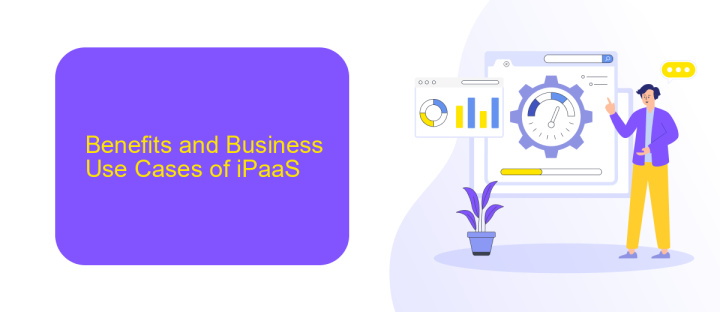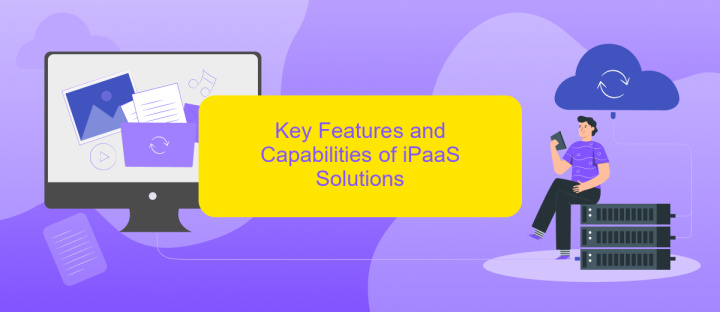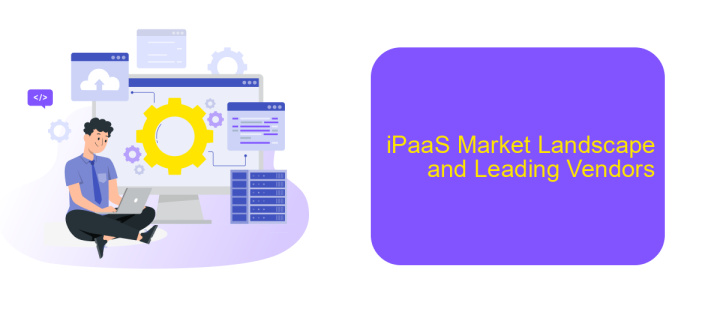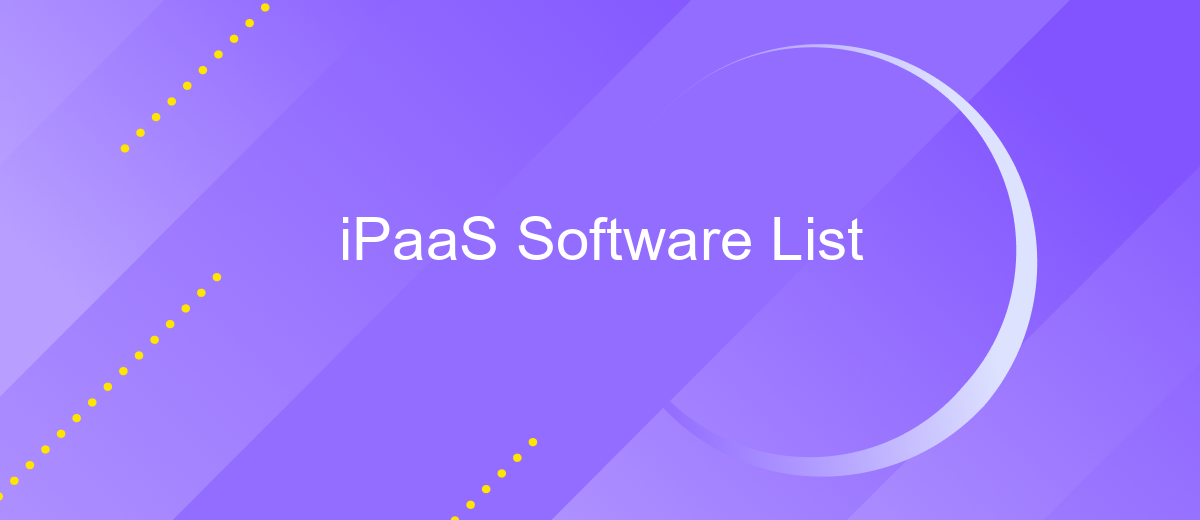iPaaS Software List
In today's rapidly evolving digital landscape, businesses are increasingly turning to Integration Platform as a Service (iPaaS) solutions to streamline their operations and enhance connectivity. This article provides a comprehensive list of top iPaaS software, highlighting their key features and benefits to help organizations make informed decisions and achieve seamless integration across diverse systems and applications.
Introduction and Definition of iPaaS
Integration Platform as a Service (iPaaS) is a cloud-based solution designed to streamline the process of integrating various applications and data sources. It allows businesses to connect disparate systems without the need for extensive coding or complex middleware, thus enhancing operational efficiency and reducing costs.
- Automated workflows: iPaaS enables the creation of automated workflows between different applications.
- Real-time data synchronization: Ensures that data is consistently updated across all integrated systems.
- Scalability: Easily scales to accommodate growing business needs and additional integrations.
- Security: Provides robust security features to protect sensitive data during transfer.
- User-friendly interfaces: Simplifies the integration process with intuitive, drag-and-drop tools.
One notable example is ApiX-Drive, a service that facilitates seamless integration between various applications and services. By leveraging ApiX-Drive, businesses can automate data transfers and synchronize information in real-time, ensuring that all systems are up-to-date and functioning harmoniously. This not only saves time but also minimizes the risk of errors, making it an invaluable tool for modern enterprises.
Benefits and Business Use Cases of iPaaS

iPaaS (Integration Platform as a Service) offers numerous benefits for businesses, including streamlined integration processes, reduced operational costs, and enhanced data accuracy. By leveraging iPaaS, companies can connect disparate systems and applications seamlessly, enabling real-time data flow and improved decision-making. This is particularly beneficial for organizations with complex IT environments, as it reduces the need for manual data entry and minimizes errors. Furthermore, iPaaS solutions, such as ApiX-Drive, provide user-friendly interfaces that allow even non-technical users to set up integrations quickly and efficiently, fostering greater agility and innovation.
In terms of business use cases, iPaaS is invaluable for automating workflows across various departments, such as marketing, sales, and customer service. For instance, integrating CRM systems with marketing automation tools ensures that customer data is consistently updated and accessible, enhancing personalized marketing efforts. Additionally, iPaaS can facilitate the synchronization of e-commerce platforms with inventory management systems, ensuring accurate stock levels and timely order processing. With services like ApiX-Drive, businesses can easily connect multiple applications and automate complex workflows, driving operational efficiency and enabling a more cohesive digital ecosystem.
Key Features and Capabilities of iPaaS Solutions

iPaaS (Integration Platform as a Service) solutions offer a wide range of features and capabilities that streamline the integration of various applications and data sources. These platforms are designed to simplify complex integration processes, making it easier for businesses to connect disparate systems and automate workflows.
- Pre-built Connectors: iPaaS solutions provide a vast library of pre-built connectors for popular applications and services, enabling quick and easy integration without the need for custom coding.
- Data Transformation: These platforms offer robust data transformation tools that allow users to map, modify, and enrich data as it flows between systems, ensuring consistency and accuracy.
- Real-time Monitoring: iPaaS solutions include real-time monitoring and alerting capabilities, helping businesses to proactively identify and resolve integration issues.
- Scalability: Designed to handle varying workloads, iPaaS platforms can scale up or down based on the integration demands of the business.
- User-friendly Interface: Intuitive drag-and-drop interfaces make it easy for non-technical users to design and manage integrations.
For instance, ApiX-Drive is a notable iPaaS solution that offers seamless integration capabilities, allowing businesses to connect their applications and automate workflows efficiently. With its extensive library of connectors and user-friendly interface, ApiX-Drive simplifies the integration process, making it accessible to users of all technical levels.
iPaaS Market Landscape and Leading Vendors

The iPaaS (Integration Platform as a Service) market has experienced significant growth in recent years, driven by the increasing need for seamless integration of disparate systems, applications, and data sources. Organizations are increasingly adopting iPaaS solutions to streamline their operations, enhance data connectivity, and improve overall efficiency.
Several leading vendors dominate the iPaaS market, offering a range of features and capabilities to meet diverse integration needs. These vendors provide robust platforms that enable businesses to connect various applications and automate workflows without extensive coding or manual intervention.
- MuleSoft
- Microsoft Azure Logic Apps
- IBM Cloud Pak for Integration
- ApiX-Drive
- SnapLogic
Among these, ApiX-Drive stands out for its user-friendly interface and extensive library of pre-built connectors, making it easier for businesses to set up integrations quickly. By leveraging such iPaaS solutions, companies can achieve greater agility, reduce operational costs, and ensure that their systems work harmoniously together.
Tips for Choosing and Implementing an iPaaS Solution
When choosing an iPaaS solution, it's crucial to evaluate your organization's specific needs and integration requirements. Start by identifying the systems and applications you need to connect, and ensure the iPaaS platform supports them. Look for features like scalability, security, and ease of use. Additionally, consider the vendor's reputation, customer support, and pricing models to ensure they align with your business goals.
Implementing an iPaaS solution requires careful planning and execution. Begin by mapping out your integration workflows and setting clear objectives. Utilize tools like ApiX-Drive, which simplifies the integration process by allowing you to connect various applications without extensive coding knowledge. Test your integrations thoroughly to ensure they work seamlessly and monitor their performance regularly. Proper training for your team and ongoing support from the vendor can significantly enhance the success of your iPaaS implementation.


FAQ
What is iPaaS?
How does iPaaS benefit businesses?
Can iPaaS be used by non-technical users?
What types of integrations can be achieved with iPaaS?
How secure is data when using iPaaS?
Routine tasks take a lot of time from employees? Do they burn out, do not have enough working day for the main duties and important things? Do you understand that the only way out of this situation in modern realities is automation? Try Apix-Drive for free and make sure that the online connector in 5 minutes of setting up integration will remove a significant part of the routine from your life and free up time for you and your employees.

